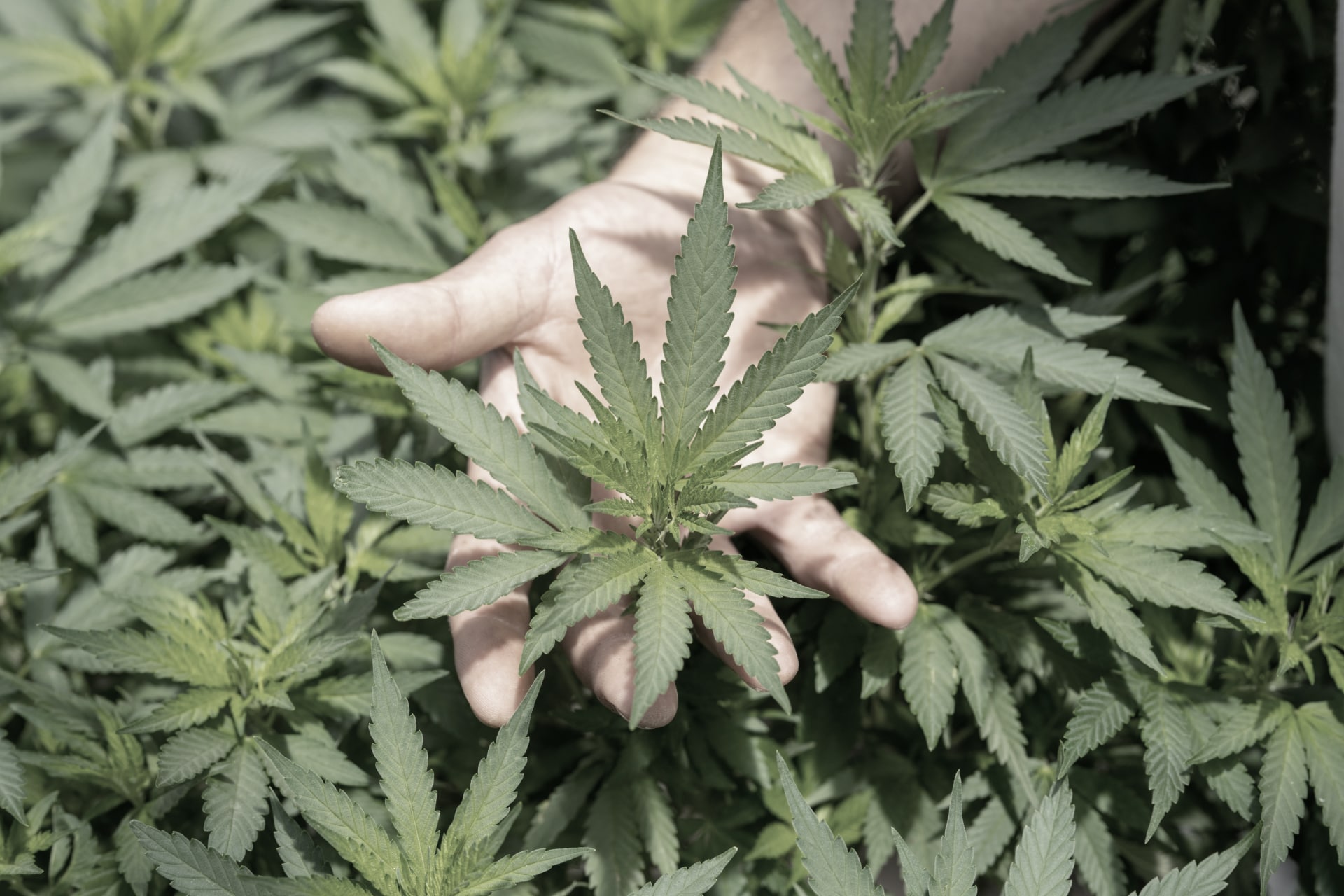
Cannabidiol: What you need to know about CBD in Germany
There are a lot of uncertainties about Cannabidiol (CBD) in Germany, and not just regarding the law and regulations. If you've followed the ongoing discussion about CBD, you'll know that there are two sides: One is convinced about the positive effects and the other is not. Who is right?
It's actually not that simple a question to answer, as the medicinal effects of cannabis on humans still haven't been fully investigated. And because there are people who are convinced about its efficacy, a market exists to sell them such products. Find out what the deal is with cannabidiol and what the legal situation in Germany is.
What is cannabidiol?
Cannabidiol is an active substance that is extracted from the hemp plant. CBD is a non-psychoactive cannabinoid – the umbrella term for all substances contained in hemp – found in the female hemp or cannabis plant. Cannabidiol is often ascribed anti-convulsant, anti-inflammatory and anti-anxiety properties. These could only be partially corroborated in animal studies, however. Other effects are still under investigation and thus have not been conclusively verified. The World Health Organization (WHO) has also carried out studies and has classified CBD as safe.
Tetrahydrocannabinol (THC) is also contained in the leaves, flowers and stems of the hemp plant. In contrast with CBD, THC is a psychoactive substance and thus considered to have an intoxicating effect.
What effect does CBD have on the body?
There are cannabinoid receptors in the human nervous system. The active substances found in hemp plants can dock onto these receptors. As you already know, these cannabinoids include THC and CBD, but there's also cannabinol (CBN) and cannabichromene (CBC) too.
There are two different types of receptors. Type-1 receptors sit in the central nervous system. The effects of taking CBD are being studied for different forms of nerve damage as well as neurodegenerative diseases such as Parkinson’s and Alzheimer’s.
Type-2 receptors are located in the reproductive, immune and digestive systems. They are also present in the eyes, glands, skin, bone and lungs. Many reports on the use of cannabinoids for diseases and other complaints are often associated with these organs. Besides the active substances of the hemp plant, endocannabinoids are produced by the human body itself. These can dock onto the aforementioned receptor types too.
Who uses CBD and how is it taken?
Cannabidiol is most commonly taken by people suffering from pain, convulsions, menstrual discomfort and sleeping disorders. CBD is reportedly being taken by people with arthrosis and arthritis too, because the active ingredient is said to ameliorate the symptoms triggered by these diseases. In addition, CBD is supposed to help combat anxiety, depression and nausea.
There are a variety of products and thus ways of taking CBD. These include cremes, skincare products, capsules, oils, ointments and teas. Nowadays, it's also possible to smoke CBD – via vaporiser or as a liquid for electronic cigarettes. Oils, however, are totally unsuitable for smoking as they are not designed to be heated.
The legal basis for CBD: What is permitted in Germany and what isn't?
Cannabidiol is not medicinal cannabis. In Germany, this can only be dispensed by pharmacies. Only patients with a prescription from a doctor can get this cannabis.
The legal basis for CBD is far less clear than for medicinal cannabis. As a pure substance, it is not currently subject to the German Narcotics Law (BtMG). Things get more complicated when the flower is involved. The BtMG states that all parts of the cannabis plant are banned. An exception is made for specific certified hemp varieties from the EU.
But hemp plants whose THC content is under 0.2 percent and that are only used for industrial or scientific purposes are exempted too. This only applies, however, if abuse is precluded. This lax formulation offers both authorities and vendors a certain interpretive freedom. Neither party knows exactly how the law should be interpreted. There's still no uniform regulation.
CBD has been classified by the European Commission as a "Novel Food". This includes all foods that were consumed in small quantities prior to May 2015. Consequently, to obtain a license, a suitable application must be submitted. It is unclear which CBD products require a license. The corresponding industry sector continues to grow in size. Anyone who wishes to sell CBD is only issued a license after a security check. According to the consumer organisation, this classification also applies to CBN, CBC und CBG (cannabigerol). The legal basis for CBD isn't a settled matter at present, and isn't likely to be for the next few years either.
The THC reference value of 0.2 percent
According to the German Federal Institute for Risk Assessment (BfR), if the CBD market adheres to the THC reference value, there shouldn't be any adverse effects. The BfR points out, however, that this number is just a provisional reference value. It is still unclear how the effect of THC and the respective dose are related. According to the BfR, products that have been analysed exceed this reference value time and again.
CBD is permitted in Germany – under certain conditions
You can purchase cannabidiol legally on the German market. CBD may only be sold as a food supplement or cosmetic article, however. These and other products may not be sold if the vendor promises a medicinal effect from CBD, though. The product would then automatically be considered a remedy or medicinal product. Cannabidiol can be traded if the THC content of a product does not exceed 0.2 percent.CBD is treated as equivalent to traditional tobacco products. You may use it everywhere you are allowed to smoke cigarettes. If you are interested in CBD products for smoking, you're always on the safe side if you order them from a German online store or purchase them from a reputable shop in Germany.